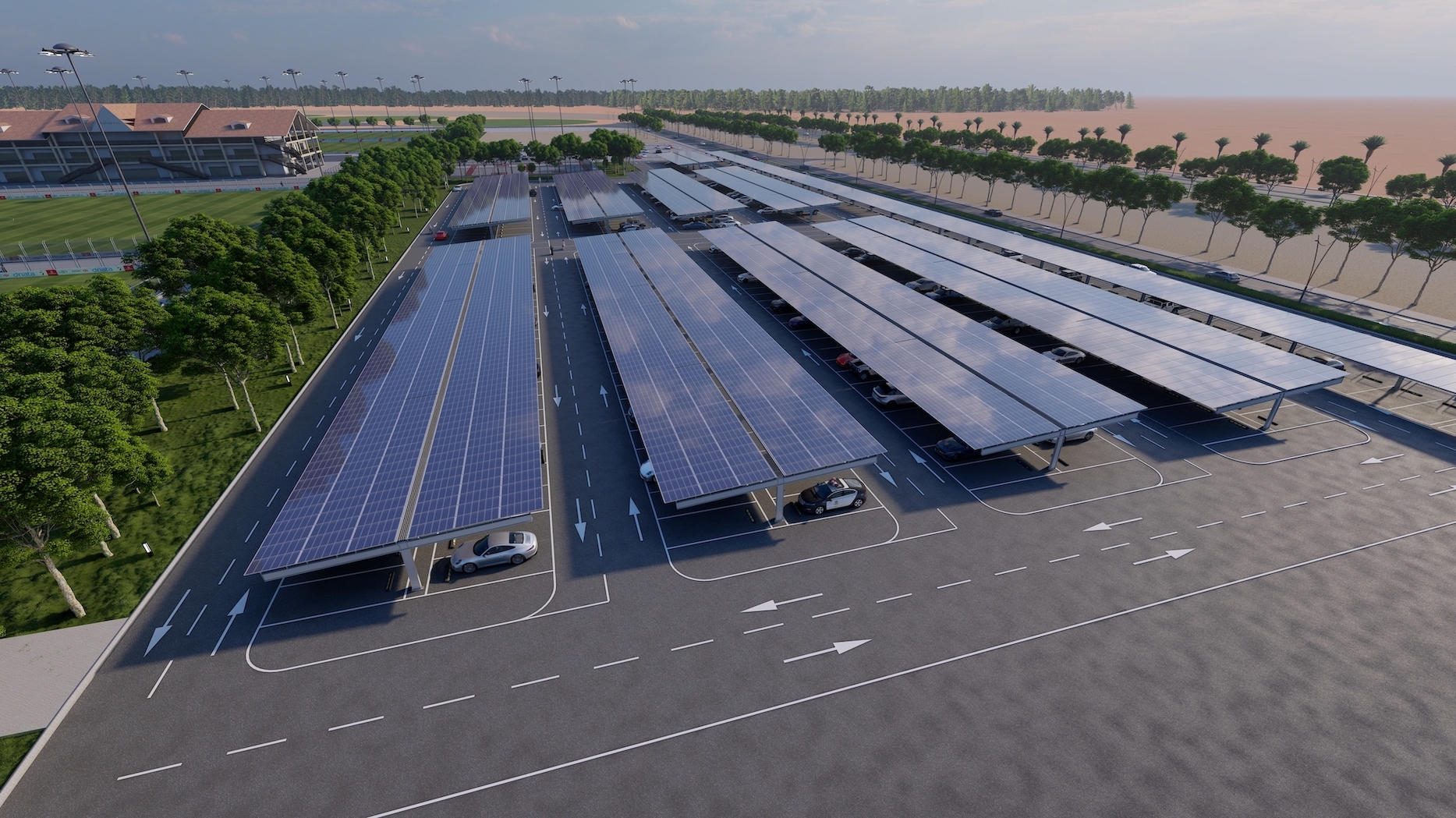Sevens Stadium Solar Carport, the first and largest Solar Carport at a sporting facility in Dubai has been opened. in a ceremony graced by Sheikh Ahmed bin Saeed Al Maktoum, chairman of the Emirates Group.
Utilizing a total of 4,500 solar panels spread over an area of 10,550 square meters, the solar carport will reportedly provide the stadium with 3.6GwH of clean energy per year. This energy will be used to power floodlights for all of its six ovals (grass and sand), eight grass fields, and four multi-purpose courts as well as the stadium’s 1,042 lamps on all of their fields, courts, and pitches, 57 water and irrigation pumps across the facility, and 256 streetlamps, just to mention a few.
Also Read: Dubai unveils plans to construct Coal-Fired Power Plant.
Generally, the carport can provide sufficient electricity to power the stadium and its operations throughout the year except for, during the week of the Dubai Rugby 7s. During that week, supplementary power will be used for Dubai’s biggest lifestyle and sporting event.
Sheikh Ahmed bin Saeed Al Maktoum explained that the Emirates Group already committed to utilizing clean energy that is solar powered throughout all of their operations, including the buildings at their Engineering Centre and the Emirates Flight Catering.
Additional benefits of the Sevens Stadium Solar Carport,
Other than providing energy for the day-to-day operations of the Sevens Stadium, the Sevens Stadium Solar Carport will also provide shaded car parking for over 550 cars alongside four charging slots for electric cars.
The facility will help reduce the stadium’s carbon dioxide (CO2) emissions by an impressive 1,496 metric tonnes annually. The Chairman of the Emirates Group expressed with a passion that the first and largest Solar Carport in Dubai was a part of their goal towards transforming the state into a carbon-neutral economy by 2050.

Leave a Reply